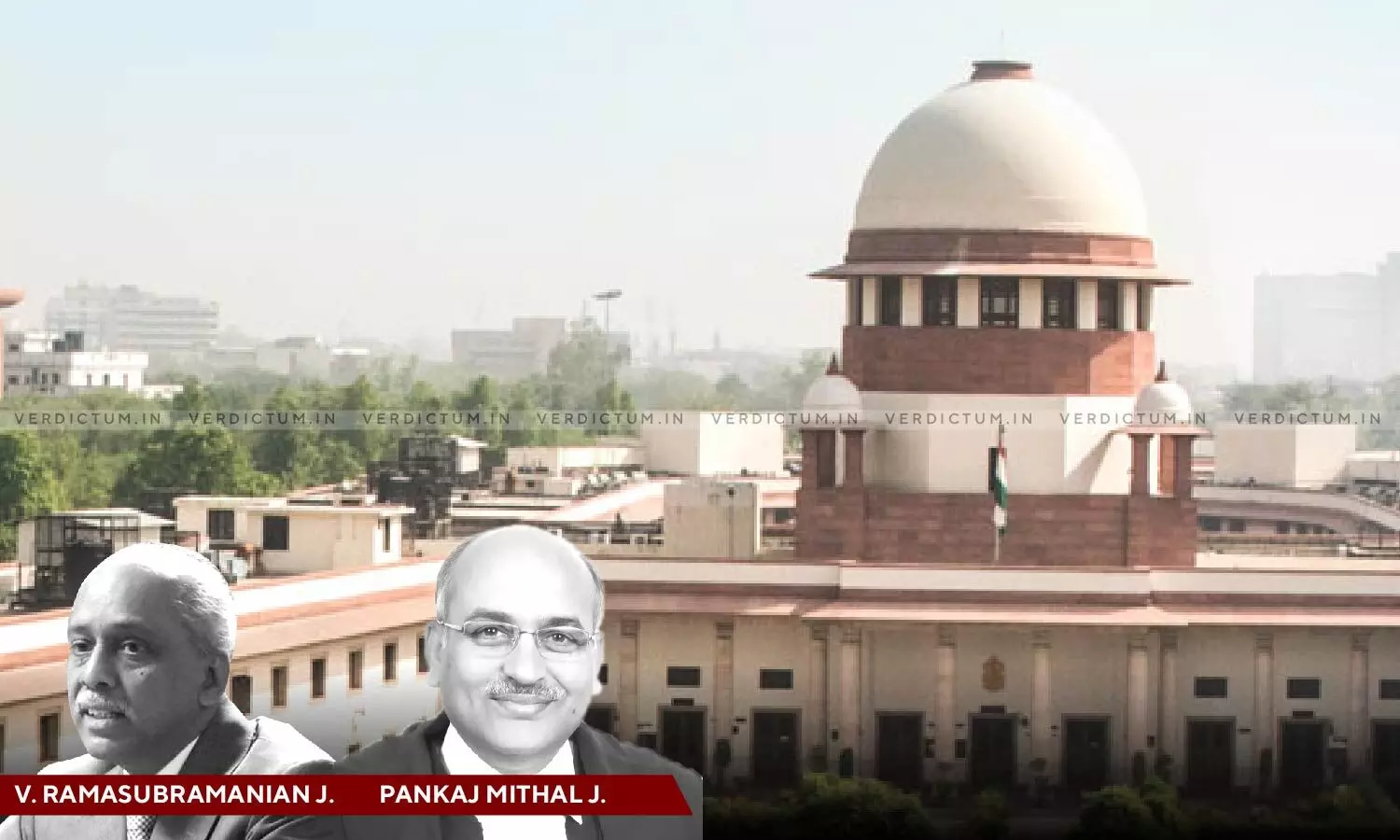
Twin Conditions Of Section 37 NDPS Act Not Satisfied- SC Sets Aside Bail Granted To Alleged Kingpin & Organiser Of Illicit Trade In Ganja
 |
|The Supreme Court has set aside the High Court's Order granting bail to the alleged kingpin and the organiser of the illicit trade in ‘ganja’.
The Court noted that when a person was accused of committing offence under the Narcotic Drugs and Psychotropic Substances Act, 1985 (NDPS Act) which involved trade in commercial quantity of narcotics, it was pertinent upon the Court to consider the twin conditions laid down under Section 37 of the NDPS Act while considering the bail application.
The Bench of Justice V. Ramasubramanian and Justice Pankaj Mithal observed that as per Section 37 of the NDPS Act, “...it is implicit that no person accused of an offence involving trade in commercial quantity of narcotics is liable to be released on bail unless the court is satisfied that there are reasonable grounds for believing that he is not guilty of such an offence and that he is not likely to commit any offence while on bail.”
The Bench held that “The quantity of “ganja” recovered is admittedly of commercial quantity. The High Court has not recorded any finding that the respondent-accused is not prima facie guilty of the offence alleged and that he is not likely to commit the same offence when enlarged on bail rather his antecedents are indicative that he is a regular offender. In the absence of recording of such satisfaction by the court, we are of the opinion that the High Court manifestly erred in enlarging the respondent-accused on bail.”
Additional Solicitor General Aishwarya Bhati appeared for the appellant-Union of India and Advocate-on-record Divyesh Pratap Singh appeared for the respondent.
In this case, the appeal was preferred against the order of Allahabad High Court whereby the respondent accused was granted bail on the ground of the larger mandate of Article 21 of the Constitution and for the reason that the accused persons had already been enlarged on bail. The respondent had been allegedly accused of committing offences punishable under Sections 8, 20, 27-A, 29, 32 of the Narcotic Drugs and Psychotropic Substances Act, 1985.
Section 37 of the NDPS Act provides that no person accused of an offence involving commercial quantity should be released on bail unless the twin conditions laid down therein were satisfied- “(i)the public prosecutor has been given an opportunity to oppose the bail application; and (ii) the court is satisfied that there are reasonable grounds for believing that he is not guilty of such an offence and that he is not likely to commit any such offence while on bail.”
The Apex Court noted that the statement of the co-accused revealed that the respondent-accused was the kingpin and the organiser of the illicit trade in ‘ganja’. It was also noted that the respondent had been involved in similar crimes and several cases were pending against him.
“The above two accused are not the main accused, but the vicarious agents of the respondent-accused, who is the main person in drug trafficking and was involved in the above illegal transactions.” said the Apex Court.
Therefore, the Apex Court said that the High Court while passing the impugned judgment failed to consider Section 37 of the NDPS Act and committed illegality in releasing the respondent on bail.
Accordingly, the appeal was allowed.
Cause Title- Union of India v. Ajay Kumar Singh @ Pappu
Click here to read/download the Judgment